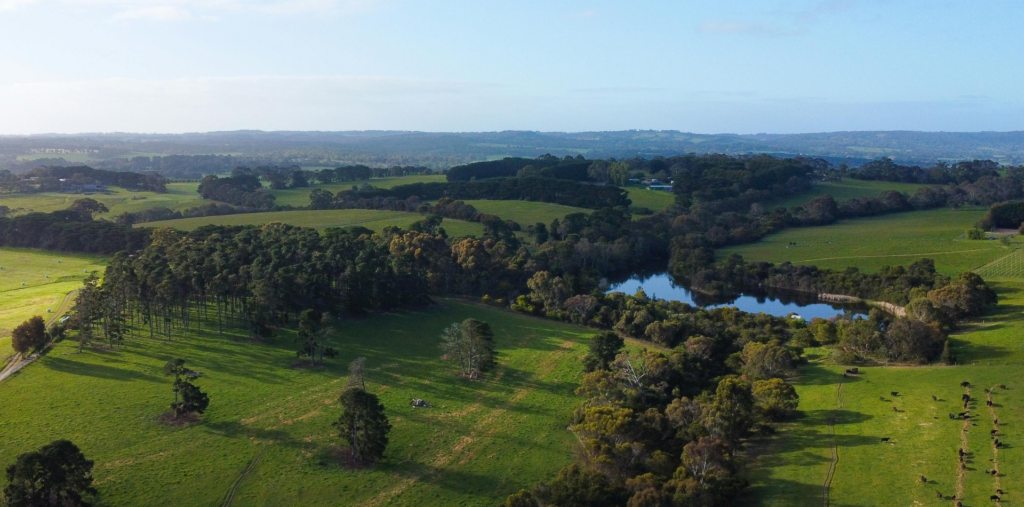Thinking of starting a carbon farming project? Here’s what you need to know about the long-term commitments.
Australian carbon credits, known as Australian Carbon Credit Units (ACCUs), are an opportunity for landholders to diversify income and improve environmental outcomes, and contribute to soil health. But with opportunity comes responsibility, and to benefit from carbon farming, it’s crucial to understand the long-term commitments involved.

What are ACCUs? A Quick Recap
ACCUs are central to Australia’s efforts to combat climate change by reducing greenhouse gas emissions. Each ACCU signifies one tonne of carbon dioxide equivalent (tCO2-e) that has been prevented from entering the atmosphere or removed through sequestration. Beyond their environmental value, ACCUs provide landholders with a tangible financial benefit, offering the opportunity to generate and trade credits on the carbon market.
Landholders can earn ACCUs by adopting sustainable practices such as carbon sequestration or emissions reduction under the Australian Government’s ACCU Scheme. ACCUs are earnt through carbon farming projects such as Reforestation, Plantation Forestry, and Soil Carbon.
The potential for benefits is clear. But ACCUs come with long-term obligations that all landholders need to understand before starting their project.
If you’re interested in learning more about ACCUs, you can learn more from our article here.

Key Long-term Commitments to Consider
1. Permanence Periods: 25 or 100 Years
When you start a carbon farming project, you commit to maintaining the carbon stored on your land for a specified duration known as the “permanence period”. This can be either 25 or 100 years. Here’s how they differ:
- 25-year permanence: Offers flexibility with a shorter commitment. However, projects with a 25-year permanence period receive only 80% of the ACCUs that would be issued under a 100-year commitment.
- 100-year permanence: Provides more ACCUs and a greater contribution to soil health and climate goals but requires a century-long commitment to maintaining carbon storage.
Choosing the right option depends on your long-term goals and capacity to manage land use over time. Remember, a longer permanence period often attracts higher market value for your ACCUs.
2. Monitoring and Reporting Requirements
The Clean Energy Regulator requires monitoring and reporting to ensure projects deliver genuine carbon abatement. This involves:
- Ongoing site assessments: Checking that the carbon sequestration activity is maintained.
- Periodic reporting: Submitting detailed reports on project performance and compliance.
- Third-party audits: Independent verification at certain intervals to ensure accuracy.
These activities incur costs and time, but they’re essential to maintaining credibility in the carbon credit market.

3. Land Use Restrictions
Carbon farming projects can place restrictions on how you use your land during the project’s permanence period. For example:
- Native vegetation must not be cleared or disturbed.
- Grazing practices may need adjustment to protect carbon stocks.
Such restrictions ensure the integrity of carbon storage but require careful planning to balance agricultural productivity with carbon commitments.
4. Legal Agreements
Most carbon projects involve legal agreements that outline your responsibilities, including compliance with permanence periods, land use restrictions, and reporting obligations. These agreements may also create obligations for future landholders if the property is sold.

Potential Risks and Solutions
While the long-term nature of carbon farming projects can seem daunting, understanding the risks helps you manage them effectively. Here are common concerns and practical solutions:
Changing Land Use Needs
- Risk: Future generations may wish to use the land differently, creating potential conflict with carbon farming commitments.
- Solution: Opt for a 25-year permanence period if flexibility is a priority. Alternatively, ensure clear communication with family or future buyers about the project’s obligations.
Non-compliance Penalties
- Risk: Failing to meet monitoring, reporting, or permanence requirements can result in penalties or the need to relinquish ACCUs.
- Solution: Establish a clear compliance plan, including scheduled reporting and routine audits, to stay on track.

Why it’s Worth It
While committing to the long-term requirements of carbon farming may initially seem daunting, the rewards can outweigh the challenges.
By embracing the permanence period, regular monitoring, and sustainable land use, landholders position themselves as key players in addressing climate change and fostering environmental restoration.
Financial Rewards
As global demand for carbon credits surges, participating in the market today ensures you are well-positioned to benefit from future opportunities. The international spotlight on carbon offset initiatives means ACCUs are not only valuable now but are projected to appreciate in value , securing a competitive edge for proactive landholders.
With the increasing need to act on climate issues, more businesses are becoming interested in the carbon credit market as a way of offsetting their emissions. At the end of 2024, we saw the spot price of ACCUs rise to $36.25, and land-based credits, especially those from environmental planting projects with 100-year permanence, trading even higher. Also, ANZ has forecasted that the spot price will double in 2025.
Resilient Land
The environmental benefits to your land can be transformative. Carbon farming projects rejuvenate the land by supporting biodiversity, improving soil quality, and increasing the water retention capacity of soil. These improvements boost the productivity and sustainability of your land, creating a thriving ecosystem for both agriculture and native biodiversity.
By committing to these projects, you also play a pivotal role in establishing more sustainable and climate-resilient land. Not just reducing emissions but also leading the way in sustainable practices that benefit Australian land for generations to come and contributing to Australia’s carbon reduction goals.

Getting Started with Confidence
Understanding and managing the long-term commitments of ACCUs can feel complex, but it doesn’t have to be. At the Carbon Farming Foundation, we’re dedicated to guiding you through every step of the process. Our mission is to empower landholders with the tools, knowledge, and support needed to thrive in carbon farming, on your terms.
With our transparent fee-for-service model, you only pay for the services you use, giving you control over your investment. Plus, we ensure that landholders have 100% ownership of the ACCUs they earn, maximising the financial benefits of your hard work. It’s no wonder that 100% of our clients say they would recommend us.
From choosing the right project to understanding your obligations, we make carbon farming accessible and achievable. With the right guidance, you can reap the financial and environmental rewards while securing a sustainable future for your land.
Ready to explore how carbon farming can benefit your land? Click here to book a free, non-obligation call with us to learn more about starting a project.


![AFN – Cert Accredited Expert [RGB] AFN - Cert Accredited Expert [RGB]](https://carbonfarming.org.au/wp-content/uploads/elementor/thumbs/AFN-Cert-Accredited-Expert-RGB-e1725255016744-qti2uogw4b9a3s6au2d1bbf4utb8ggjuwvkj4qpce8.png)